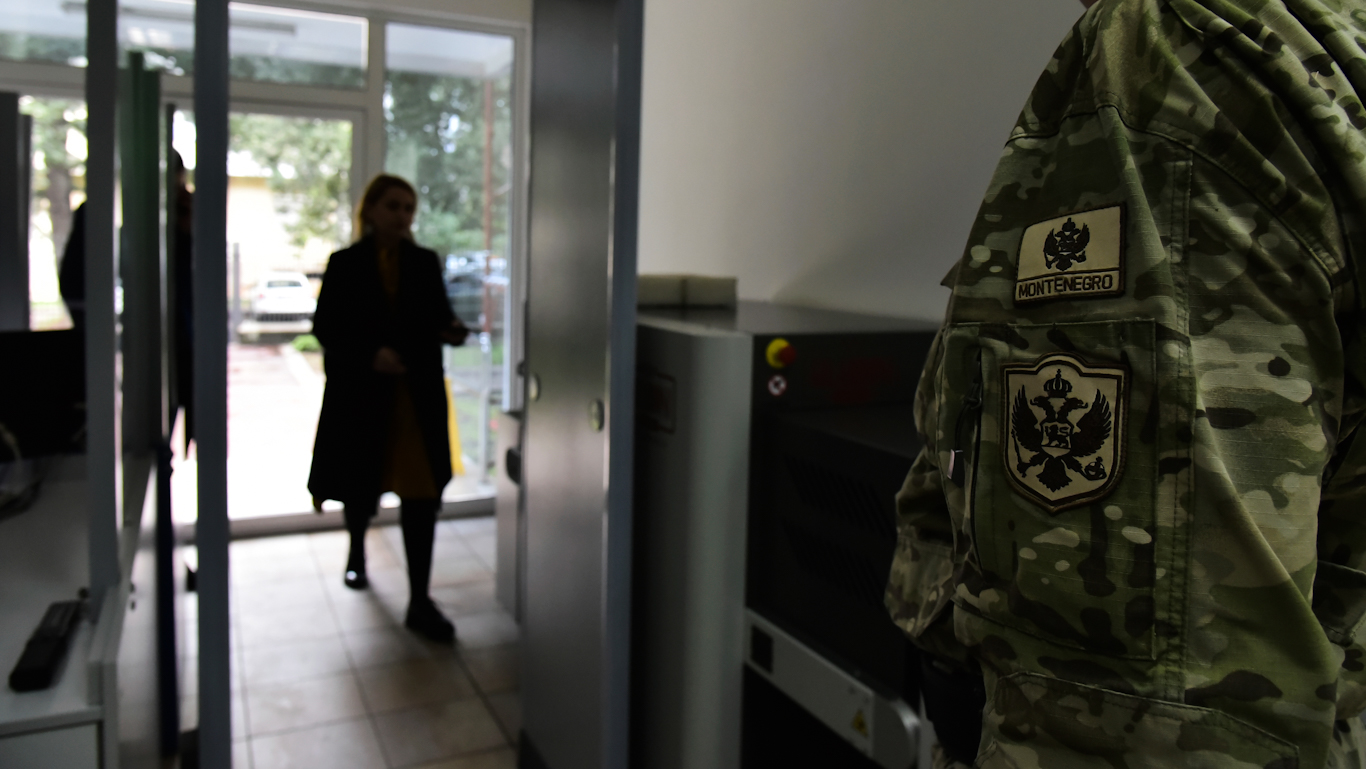China doesn’t want Trump to win in November, according to William Evanina, Director of the National Counterintelligence and Security Center (NCSC). Russia, on the other hand, is “using a range of measures” to undermine Joe Biden’s candidacy. The intelligence official also accuses China of “expanding its influence” ahead of the 2020 U.S. presidential election, but only to “deflect and counter criticism” as opposed to a direct attack on the incumbent.
As the election nears, calls for bolstering cybersecurity efforts from the U.S. military establishment and other quarters are intensifying. Former head of the NSA, Mike Rogers, leaned into the Russian meddling narrative in a recent interview with NPR to justify increased surveillance and more proactive approaches to the ostensible “threat” posed by social media memes and hashtags to the American electoral process. In early February, the top three cyber chiefs pitched a social media hashtag of their own, #Protect2020, which has been posted enthusiastically by FBI twitter accounts, but few others.
Rogers’ successor at the NSA, Gen. Paul Nakasone revealed in a Foreign Affairs article published Tuesday, that he had received authorization to carry out operations against Russian “interference” in the 2018 U.S. midterm elections and had sent “an undisclosed number of defensive cyber-operators” to countries bordering American adversaries for the purposes of defending against foreign meddling.
Domestically, the potential targeting of American citizens as foreign actors or agents was moved forward by Bill Barr’s Justice Department in June, in response to the Minneapolis riots, Barr released a statement naming “Antifa and other similar groups” as possible targets of its 56 regional FBI Joint Terrorism Task Forces (JTTF) offices. In the same statement the top prosecutor invoked the National Guard, which would be “deployed on the streets to reestablish law and order” if necessary.
Now, the National Guard has been taken under the wing of U.S. Cyber Command, which will coordinate a new DHS program called the Election Security Group; a “partnership between federal, state and local government and private sector entities”, that among other things, directs state and local governments to “disburse funds for the procurement of updated voting equipment” and “administer statewide voter registration databases.”
Hunt forward, look backwards
Mission “hunt forward” was first described in the DoD Cyber Strategy for 2018, which called for countermeasures against the “persistent campaigns” of enemy nations like China, Russia, North Korea and Iran. The 2018 operation included “partner” nations Montenegro, Ukraine and (North) Macedonia where U.S. cybersec troops went to work to “find [hacking tools on networks]”.
The information is passed on to the newly established Election Security Group – a “partnership between federal, state and local government and private sector entities” – that assesses the data to determine if a threat exists and communicates it to DHS, FBI and, notably, to the National Guard, which allows the Pentagon “to potentially look at something that may be occurring in the United States”, according to Army Brig. Gen. William Hartman, Cybercom’s election security lead.
Cybercom is located at Fort Meade, Maryland and “directs, synchronizes, and coordinates cyberspace planning and operations in defense of the U.S. and its interests”. Created in 2010, the military agency was elevated by the Trump administration in 2017 on then-Defense Secretary James Mattis’ recommendation to promote Cybercom to a “Unified Combatant Command”, responsible for cyberspace operations, instead of a sub-unified command under USSTRATCOM.
From Russiagate with love
The Russiagate narrative was established early on in the 2016 presidential election and U.S. intelligence agencies have been sounding the alarm bells for a repeat of supposed Russian interference in the 2020 election since then. As November approaches, U.S. officials are ramping up the rhetoric pointing to potential cyberattacks and election interference from their enemies.
Nakasone asserts that the “Chinese government uses cyber capabilities to steal sensitive data, intellectual property, and personal data from the U.S. government”, while Russia uses “cyberspace for espionage and theft and to disrupt U.S. infrastructure while attempting to erode confidence in the nation’s democratic processes.” Iran, North Korea, and other non-aligned nations all have their particular bone to pick with the United States, according to the NSA chief, and it is the responsibility of Cyber Command to thwart all of these threats.
As part of the election security strategies, an information exchange program (IEP) called Cyber 9-Line was established to monitor domestic cases of potential election interference through the National Guard, which will coordinate with its National Guard Cyber Protection Team, Cybercom and the FBI “enabling the defense of elections” by tracking down cases of election meddling and interference by “foreign actors” in the United States. Cyber 9-Line works in partnership with the Joint Cyber Command and Control program (JCC2) office, “which aims to provide commanders with enhanced situational awareness and to assist in battle management as it relates to cyber.”
Feature photo | A guard stands at the entrance of the Montenegrin Defense Ministry in Montenegro’s capital Podgorica where a group of U.S. military cyber experts are purportedly in a fight against potential Russian cyberattacks ahead of the 2020 American and Montenegrin elections. Risto Bozovic | AP
Raul Diego is a MintPress News Staff Writer, independent photojournalist, researcher, writer and documentary filmmaker.
The post Cyber Command Gets New Surveillance Powers Under Guise of Battling Election Meddling appeared first on MintPress News.
